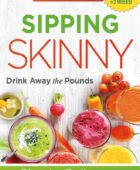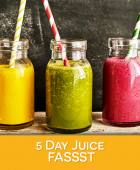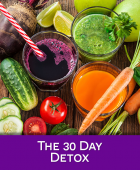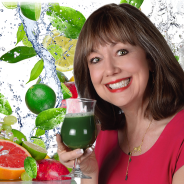Depression & Antidepressants
It is with a heavy heart that I am sharing that a dear friend of mine committed suicide this week. She was on an antidepressant because she’d been depressed and wasn’t sleeping well. She was given the antidepressant to help her sleep. Instead it clouded her judgment and she took her life with those pills. I am absolutely devastated. That is why I’m writing this newsletter to warn you. Beware of antidepressants. The drug my friend was on has a high incidence of suicides. And if you aren’t sleeping well, use something besides an antidepressant to sleep. Warn everyone you know. These drugs are dangerous.
“Evidence reveals some inconvenient truths, demonstrating that antidepressants actually increase the risk of suicide. Furthermore, just as the serotonin model of depression has never been scientifically validated, there is no evidence that antidepressants meaningfully and statistically significantly resolve depression – but, instead, we are confronting a growing signal of harm, including live-streamed suicides and school shootings committed by those recently prescribed. And a new study from Sweden that examines antidepressants in the context of suicide suggests that antidepressants are pushing people towards, not away from, suicide.
Swedish researchers analyzed data in a timespan in which antidepressant prescriptions rose steadily; the percentage of young women who were prescribed antidepressants increased from 1.4% to 5%. Approximately 500 young women committed suicide during this time period, and because toxicological analyses were performed postmortem, researchers could determine if these women were on antidepressants at the time that they made the decision to end their lives.
If antidepressants indeed resolve depression and prevent suicide, those who committed suicide, would be the unmedicated ones right? Also, suicide rates would decrease as antidepressant prescriptions increased.
Yet, researchers found the opposite. As antidepressant prescriptions increased 270% over 15 years, suicide rates also increased. Strikingly, more than half of the young women who committed suicide (52%) were prescribed antidepressants within a year of committing suicide. And antidepressants were detected in 41% of the women who committed suicide, showing that they were under the influence of antidepressants at the time of death. In the remaining subjects, it is also important to know whether they had recently discontinued psychotropic medication. As many who have done so would tell you, abrupt (or sometimes even cautious) tapering of medication can lead to suicidality and homicidality with associated impulsivity (long after the medication itself is undetectable).”1
Many people suffer from a depressive disorder and live in the shadows of their pain because they don’t want to get the stigma of having any kind of mental problem. It’s nothing to be embarrassed by or ashamed of. Approximately 21.5 million Americans suffer from depression.
There is help naturally. I’m not saying diet is everything. Certainly not. There are inner wounds that need healing. But one thing I’ve learned through the years is that when you feel truly healthy, you’re not as prone to depression. You’re more resilient. You can work on things that need attention in your soul. To truly be well we need to work on our whole person—body, soul and spirit to heal the pain and step out of depression into life. But that said, I’ve had numerous people tell me their depression left like fog clearing in the morning when they began my juice diet program or did a cleanse like my 30-day detox.
I want to help you with the diet that fights depression. Here are the things to choose to eat and drink and things to avoid to heal your brain and your pain.
Avoid inflammatory foods.
A study published in March 2015 in JAMA Psychiatry, showed that severe depression has been linked with brain inflammation. The most inflammatory foods are sugar, artificial sweeteners, gluten, dairy, alcohol, soda pop, and foods with preservatives and other chemicals. These foods ring the alarm bell in your limbic system.
We need plenty of anti-inflammatory foods. Chose the following foods often and get a copy of my book The Anti-Inflammatory Diet.
- Dark Leafy Greens— juice them up or add them to smoothies.
- Omega-3 fatty acids (fatty fish, walnuts, flax, cod liver oil); sunflower seeds (also rich in Vitamin D)
- Avocado—oleic acid, known as brain fat
- Berries—high antioxidant – In a study published in the Journal of Nutritional and Environmental Medicine, patients were treated for two years with antioxidants or placebos. After two years those who were treated with antioxidants had a significantly lower depression score. Antioxidants are like DNA repairmen.
- Tomatoes are depression fighters; rich in folate and alpha-lipoic acid. There’s some interesting research published in the Journal of Psychiatry and Neuroscience that show an elevated incidence of folate deficiency in patients with depression.
- Fiber is mood stabilizing. I highly recommend Toxin Absorber fiber packets. Better yet, get the complete Colon Cleanse.
- Turmeric and ginger. Studies have proven the anti-inflammatory properties of turmeric and ginger. (https://www.ncbi.nlm.nih.gov/pubmed/19594223/) Get fresh turmeric and ginger add a little chunk of each to al your juices.
For more information, see https://www.everydayhealth.com/columns/therese-borchard-sanity-break/foods-eat-every-day-beat-depression/
Notes:
1 https://kellybroganmd.com/recent-study-confirms-that-antidepressants-increase-suicide-risk/
GINGER HELPER
- 1 cup carrot juice (5–7 carrots)
- 1 rib celery with leaves
- 1/2 green apple
- 1/2 lemon, peeled
- 1-inch chunk ginger root
Juice all ingredients, stir, and enjoy! Serves 1.
From Sipping Skinny









